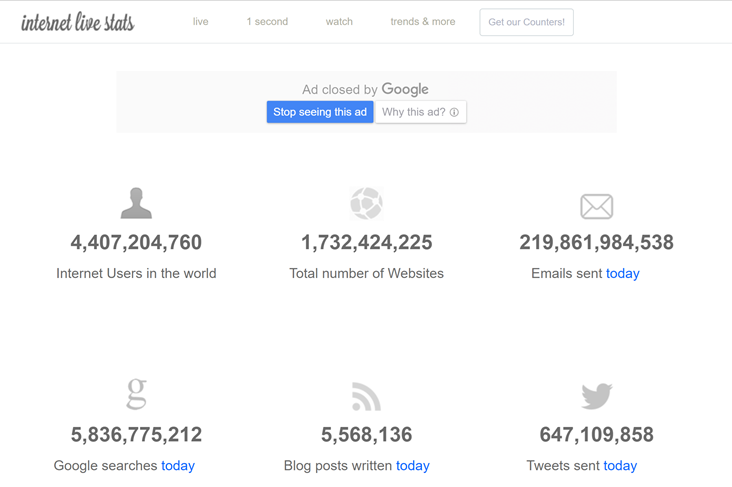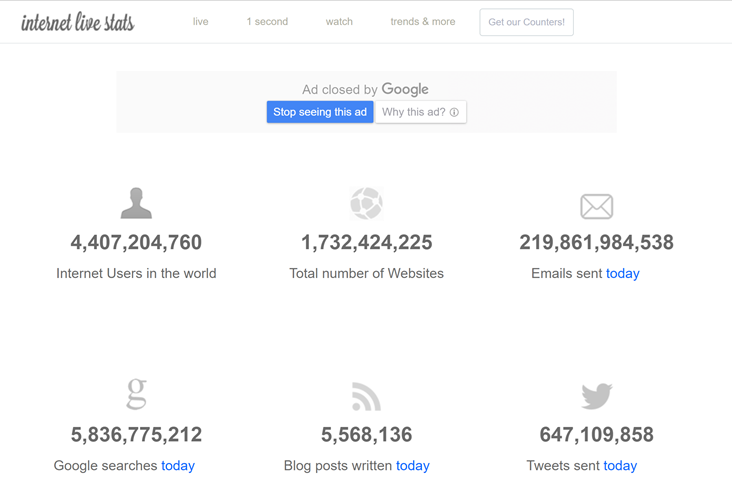The web has become so ubiquitous. Its growth over the last thirty years has been staggering. IF you want to get a sense of the speed at which the web is generating data just visit internet live stats. I am sure it will be a mind-numbing experience.
The sheer scale of the online world is staggering. With more than 4.4 billion people online as on tonight. The counter shows we are close to having 1.73 billion websites which are found by over 5.8 billion Google searches every day. More than 121 thousand websites hacked today, and more than 5.5 million blogs written today including this one.
We have watched almost 600 billion YouTube videos. The Internet traffic has generated almost 450 billion gigabytes of data. Though I do not have verified by-country figures. The last official numbers were, China – 721 million, India – 462 million and the USA – 287 million.
The internet has indeed traversed a lot of distance over the last 30 years. In a blog post for the Forum, Berners-Lee urged governments and companies to “respect the web as a global community with citizens at its heart.” At nearly 4.2 billion people, that’s more than another planet!
The Web has evolved changed the world for good and improved the lives of billions. Yet, many people are still unable to access its benefits. As the web redefines our world, we have a responsibility to make sure it is recognised as a human right and built for the public good. Therefore, the Worldwide Web Foundation is working with governments, companies and citizens to build a new Contract for the Web.
Each one of us must play a role in safeguarding the future of the Web. The Contract for the Web was created by representatives from over 80 organizations, representing governments, companies and civil society, and sets out commitments to guide digital policy agendas. Some of the tenets, principles outlined in the contract are:
- Ensure everyone can connect to the internet
- Keep all the internet available, all the time
- Respect and protect people’s fundamental online privacy and data rights
- Make the internet affordable and accessible to everyone
- Respect and protect people’s privacy and personal data to build online trust
- Develop technologies that support the best in humanity and challenge the worst
- Be creators and collaborators on the web
- Build strong communities that respect civil discourse and human dignity
- Fight for the web
The free and open web is currently facing some huge challenges and half the world’s population is still not online. For most of us today, the web’s benefits come with too many risks to our privacy, our democracy, our rights. There is an urgent need to build a better web.

